√1000以上 anticholinergic effects 305473-Anticholinergic effects definition
Anticholinergic effect is enhanced by Antidepressants, including amitriptyline, nortriptyline, paroxetine, fluoxetine and monoamine oxidase inhibitors (MAOI) Antihistamines used to treat asthma, hay fever and urticaria Tiotropium, ipratropium bromide and potassium chloride tabletsAnticholinergics generally have antisialagogue effects (decreasing saliva production), and most produce some level of sedation, both being advantageous in surgical procedures 8 9 Until the beginning of the th century anticholinergic drugs were widely used to treat psychiatric disordersAnticholinergics can be helpful for tremor and may ease dystonia associated with wearingoff or peakdose effect They have little effect on other symptoms of PD They do not act directly on the dopaminergic system Instead, they decrease the activity of acetylcholine, a neurotransmitter that regulates movement Potential adverse effects include blurred vision, dry mouth, constipation and

Anticholinergic Drugs Faisal8670
Anticholinergic effects definition
Anticholinergic effects definition-Anticholinergic agents decrease all the activities mentioned above Instead, you will increase the patient's heart rate and perfusion to the lungs and brain So just remember Administering drugs with SNS and PNS effects will directly influence where the blood will be heavily distributed for the sake of treating a number of conditionsLearn anticholinergic effects with free interactive flashcards Choose from 59 different sets of anticholinergic effects flashcards on Quizlet



Anticholinergic Syndrome Presentations Etiological Agents Differential Diagnosis And Treatment Consultant360
Adverse effects anticholinergic effects had a 56% increased risk of dying (OR Current Recommendations on Reviewing Anticholinergics NICE discontinued to reduce their risk of falling Anticholinergic (antimuscarinic) medications associated with increased risks of impaired cognition and falls in patients over the age of 65 yearsAnticholinergic xenobiotics are abundant in modern medicine Some are used specifically for their anticholinergic sideeffects (such as tricyclic antidepressants to treat nocturnal enuresis), whereas others possess anticholinergic properties as undesirable sideeffects (as is the case with antiparkinsonian and antipsychotic drugs)The likelihood that medicines may produce unwanted central anticholinergic effects depends in part on age related and patient specific variability in pharmacokinetic parameters, bloodbrain barrier permeability, degree of cholinergic neuronal degeneration and a patient's baseline cognitive status 4,5 Medicines specifically prescribed for their
Anticholinergic medications have many different side effects Side effects can appear at any time, even many years after starting a medication As time passes, you may think new symptoms are a new illness, when in fact they are side effects from your medications Below are a few common side effects of anticholinergic medicationsBenztropine is an anticholinergic used to treat the movement problems associated with Parkinson's disease Options with fewer anticholinergic properties include carbidopa/levodopa, ropinirole, or pramipexole Information on alternatives come from Dr Sharon Orrange, MD MPH, a contributor on the GoodRx Research TeamPossible effects of anticholinergics include Poor coordination Dementia Decreased mucus production in the nose and throat;
Consequent dry, sore throat Drymouth with possible acceleration of dental caries Cessation of sweating;Side effects of taking anticholinergic drugs, but may also be characteristic of other agentsExamples include tricyclic antidepressants, that may cause the side effects of dry mouth, blurry vision, constipation, or urinary problemsAlso known as antimuscarinic effects See also anticholerginic syndromeThe side effects of anticholinergic drugs all stem from the fact that these drugs produce the same effects as stimulation of the sympathetic nervous system There is a memory aid that medical
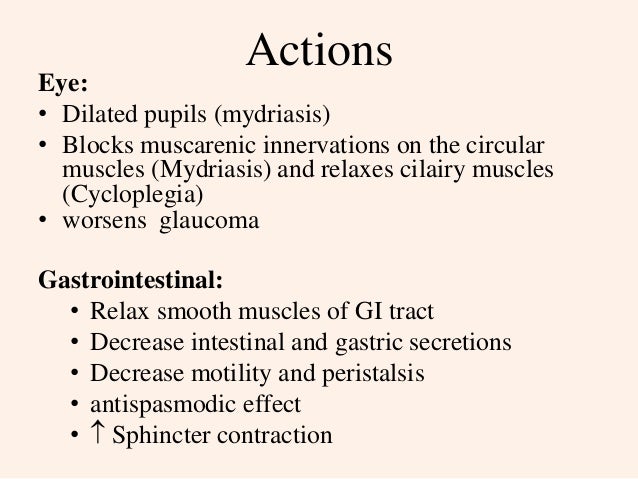


Anti Cholinergic Drugs


Q Tbn And9gcsh6ht7wx0gucsyyw7yp0acz2rlpfathkckpsyl16ddkqq1js8f Usqp Cau
These include Dry mouth due to the inhibition of the salivary glands Sore throat due to decreased mucus production Absence of sweating Increased body temperature Light sensitivity due to slowed pupil dilation Blurred vision or double vision Increased heart rate to compensate for changes in vascularSide effects of anticholinergic drugs Each medication has its own set of possible side effects;Side effects of anticholinergic drugs Each medication has its own set of possible side effects;
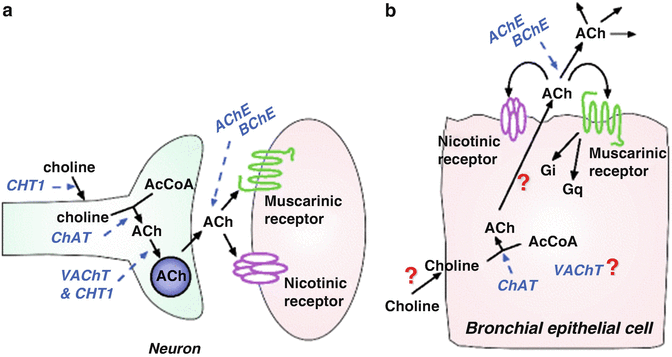


Anticholingergic Syndrome Springerlink



Table 4 From Anticholinergic Medication Use In Patients With Alzheimer S Dementia Results From A Romanian Longitudinal Study Semantic Scholar
Anticholinergic drugs block (antagonize) the action of the neurotransmitter acetylcholine A neurotransmitter is a chemical released by nerve cells to send signals to other cells Acetylcholine is involved in transmitting messages that affect muscle contractions in the body and learning and memory in the brainAnticholinergics are drugs that oppose the effects of acetylcholineIn essence, they also lyse and block the effects of parasympathetic nervous system (PNS) so they are also called as parasympatholytics Atropine is currently the only widely used anticholinergic drugOther common examples include meclizine, scopolamine and ipratropiumAntihistamine, decongestant, and anticholinergic combinations are used to treat the nasal congestion (stuffy nose) and runny nose caused by allergies and/or the common cold Antihistamines work by preventing the effects of a substance called histamine, which is produced by the body Histamine can cause itching, sneezing, runny nose, and watery



Ep12 Cholinergic Anticholinergic Sludge Nursing Com



Effects Of Anticholinergic Medications On Cognition Department Of
The review found that there are several anticholinergic drugs prescribed for adults with overactive bladder symptoms The two most studied drugs are oxybutynin and tolterodine These two drugs have similar effects but, on average, those taking oxybutynin were more likely to withdraw from the studies because of adverse effects, mainly dry mouthAcetylcholine antagonists that block the nicotinelike effects (neuromuscular blockers and autonomic ganglion blockers) are described elsewhere Acetylcholine antagonists that block the muscarinelike effects, eg atropine, are often imprecisely called anticholinergics The more specific term 'antimuscarinic' is preferred hereAnticholinergic Poisoning According to one review, certain anticholinergic drugs — such as atropine — have been reported to cause a variety of potentially toxic sideeffects when administered at dosages exceeding mg However, the most severe sideeffects typically occur at much higher doses, such as 450mg per person For example, uncontrolled or excessive consumption of the plant



Veterans Advice Veterans Mates



List Of Anticholinergic Drugs Used By Study Participants All Drugs Had Download Table
The first step, as with anything related to medication, is to consult with your doctor They will likely know of the risks associated with olderHowever, there are some common side effects that are seen among all anticholinergics Common side effects experienced by people taking anticholinergic medications include blurred vision, dry mouth, constipation, and urinary retention, or difficultyDiphenoxylate Drugs that have anticholinergic properties may have the potential to cause anticholinergic side effects Listed below are examples of some anticholinergic side effects Dry mouth Difficulty in swallowing Constipation Paralytic ileus Nausea or vomiting Increased heart rate


Anticholinergic Drugs Causing Post Renal Failure


Lexapro And Anticholinergic Side Effects
Carbidopa/levodopa, ropinirole, pramipexole, amantadine;Clomipramine, 08 These results suggest that paroxetine may induce fewer adverse anticholinergic effects than clomipramine, but more than fluvoxamineUse of multiple anticholinergics Using multiple drugs with anticholinergic effects may result in greater risk of complications and toxicity as a result of the collective side effects If you are using any overthecounter drugs with anticholinergic effects it's best to talk to your doctor about the potential drug interactions



Anticholinergic Syndrome Presentations Etiological Agents Differential Diagnosis And Treatment Consultant360



Pdf Managing Anticholinergic Side Effects Semantic Scholar
"Anti" means NOT – so these are all the things they CAN'T do because of Anticholinergics (Side Effects) Cornell NoteTaking System Instructions Record During the lecture, use the notetaking column to record the lecture using telegraphic sentencesAnticholinergic Poisoning According to one review, certain anticholinergic drugs — such as atropine — have been reported to cause a variety of potentially toxic sideeffects when administered at dosages exceeding mg However, the most severe sideeffects typically occur at much higher doses, such as 450mg per person For example, uncontrolled or excessive consumption of the plantThe likelihood that medicines may produce unwanted central anticholinergic effects depends in part on age related and patient specific variability in pharmacokinetic parameters, bloodbrain barrier permeability, degree of cholinergic neuronal degeneration and a patient's baseline cognitive status 4,5 Medicines specifically prescribed for their


Q Tbn And9gcrgzgzyblckizrfwdswtmjzlrrpjollvtfipis2lsrqimm6p 2p Usqp Cau


What Are The Types Of Anticholinergic Drugs Quora
Many of the medications that we commonly prescribe have anticholinergic properties In patients over 65 years of age these can cause adverse events, such as confusion, dizziness and falls These have been shown to increase patient mortality You can use this calculator to work out the Anticholinergic Burden for your patientsElderly patients in particular may develop anticholinergicinduced agitation, irritability, disorientation, hallucinations and delirium because of the natural loss of cholinergic neurones with aging Sideeffects These agents have some preference for the central nervous system but some peripheral anticholinergic effects are to be expectedAnticholinergic effects include constipation, urinary retention, dry mouth, blurred vision and, at times, cognitive impairment These symptoms can lead to other



Cholinergic And Antimuscarinic Anticholinergic Mechanisms And Drugs Clinical Pharmacology 11e


Learning Development Nursing Management Of Anticholinergic Side Effects
Anticholinergic side effects in older adults (confusion, dry mouth, constipation, urinary retention) Clearance reduced with advanced age;Elderly patients in particular may develop anticholinergicinduced agitation, irritability, disorientation, hallucinations and delirium because of the natural loss of cholinergic neurones with aging Sideeffects These agents have some preference for the central nervous system but some peripheral anticholinergic effects are to be expectedAnticholinergics can be helpful for tremor and may ease dystonia associated with wearingoff or peakdose effect They have little effect on other symptoms of PD They do not act directly on the dopaminergic system Instead, they decrease the activity of acetylcholine, a neurotransmitter that regulates movement
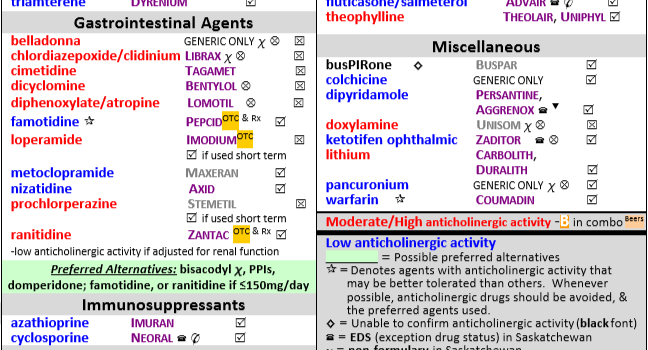


Julia Bareham Ar Twitter Are You Concerned That A Medication May Be Contributing To Your Patient S Cognitive Impairment The Geri Rxfiles Reference List Of Medications With Anticholinergic Effects May Help You Identify Problematic



Anticholinergic Drugs Ppt Video Online Download
Many of the medications that we commonly prescribe have anticholinergic properties In patients over 65 years of age these can cause adverse events, such as confusion, dizziness and falls These have been shown to increase patient mortality You can use this calculator to work out the Anticholinergic Burden for your patientsThe Effects of Anticholinergic DrugsAnticholinergics generally have antisialagogue effects (decreasing saliva production), and most produce some level of sedation, both being advantageous in surgical procedures 8 9 Until the beginning of the th century anticholinergic drugs were widely used to treat psychiatric disorders


Applicability Of Anticholinergic Risk Scale In Hospitalized Elderly Persons



Comparison Of Risk Of Neurovascular And Cardiovascular Side Effects Between Tiotropium And Other Anticholinergic Agents Insight Medical Publishing
Anticholinergic effects include constipation, urinary retention, dry mouth, blurred vision and, at times, cognitive impairment These symptoms can lead to otherAnticholinergic Drugs It blocks the action of acetylcholine of the parasympathetic nervous system It interacts with muscarinic cholinergic receptors of the secretory glands, brain and heart Anticholinergic Toxicity Physostigmine;Taking anticholinergics with alcohol or taking too many anticholinergics can result in overdose symptoms, such as dizziness extreme drowsiness fever severe hallucinations confusion trouble breathing clumsiness and slurred speech fast heartbeat flushing and warmth of the skin
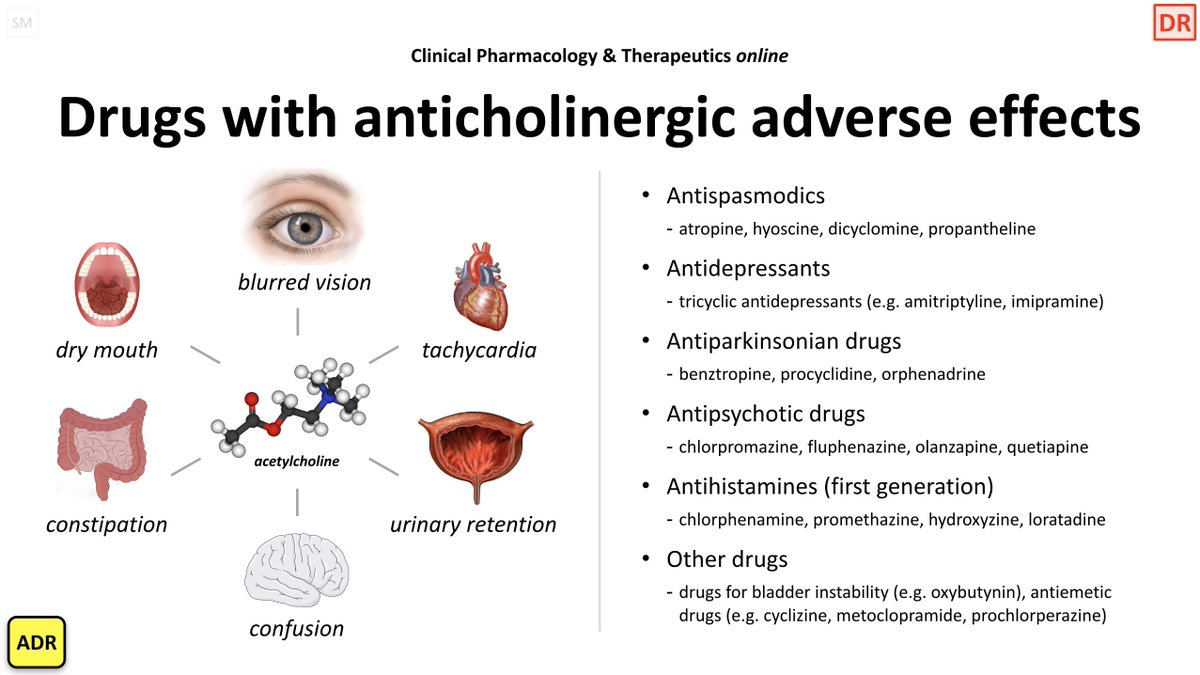


Anticholinergic
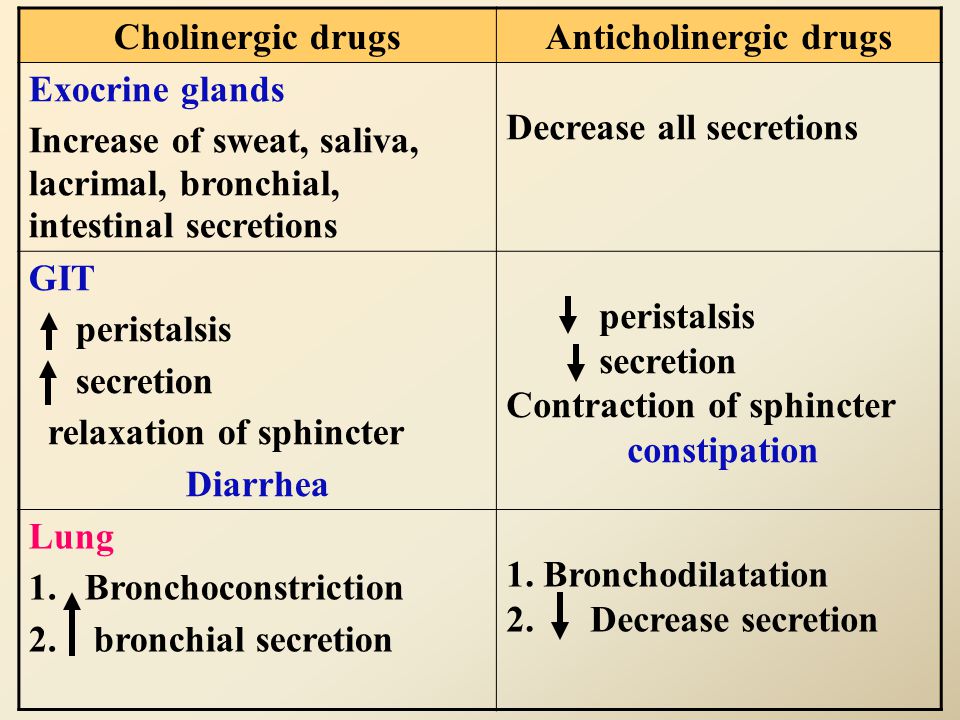


Anticholinergic Drugs Pharmacology Department Ppt Video Online Download
Both anticholinergics and benzodiazepines affect the activity of neurotransmitters—chemical messengers that work in the central nervous system—but the drugs work in slightly different ways Anticholinergic drugs block the action of acetylcholine In the brain, acetylcholine is involved in learning and memoryTable 2 gives the numbers of anticholinergic adverse effects associated with ARS scores of 0, 1 to 2, and 3 or higher Among both cohorts, the prevalences and numbers of anticholinergic adverse effects statistically significantly increased with higher ARS scores (P < 001 for both) This is initial evidence of a doseresponse relationshipAnticholinergic effects include constipation, urinary retention, dry mouth, blurred vision and, at times, cognitive impairment These symptoms can lead to other problems such as tooth decay, falls



Difference Between Cholinergic And Anticholinergic Compare The Difference Between Similar Terms



Anticholinergic Drug Burden And Delirium A Systematic Review Journal Of The American Medical Directors Association
Side effects The most common side effects of anticholinergics are dry mouth and constipation An extendedrelease form, which you take once a day, might cause fewer side effects than the immediaterelease versions, which are usually taken multiple times a day To counteract dry mouth, try sucking hard candy or chewing gum to produce more salivaAnticholinergic or antispasmodic drugs include prescription medications used to treat a variety of medical conditions Review anticholinergic drug side effects, drug interactions, storage, dosing, and pregnancy and safety information prior to taking this medicationOther Anticholinergic Drugs (will lesser AC effect) Here are some other AC drugs that may have ill effects on the brain, though they have a lesser "AC" effect than the above agents Alprazolam (Xanax) Amantadine (Symmetrel) Baclofen Carisoprodol (Soma) Cetirizine (Zyrtec) Cimetidine (amet) Clorazepate (Tranxene) Codeine Colchicine


Q Tbn And9gcqsaynvpb8vcllndvyfrxuir9b4vf0hzjuqpj2zxxh1iowywt Usqp Cau
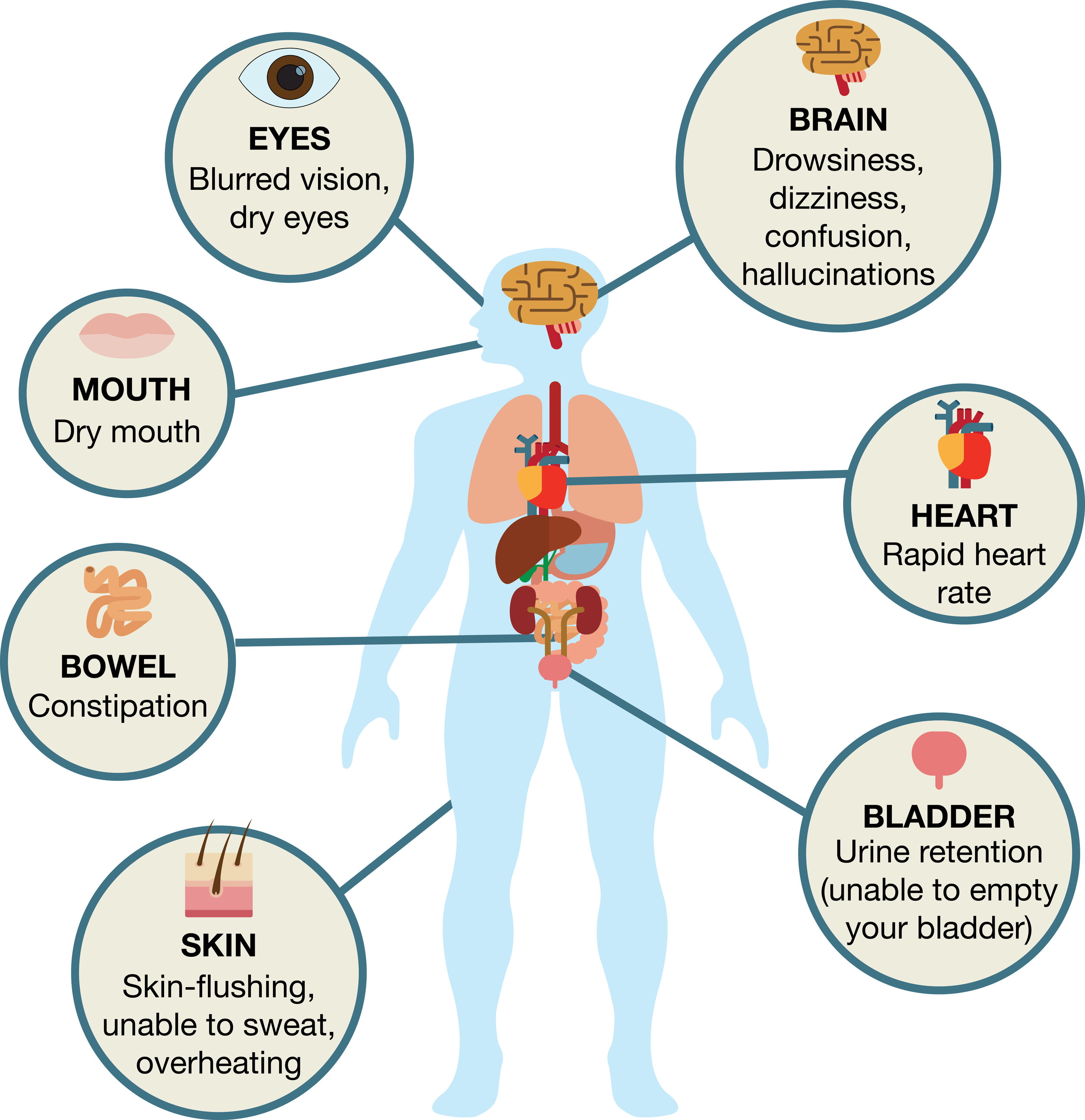


Anticholinergic Medications Do I Still Need This Medication Is Deprescribing For You
A comparison of ED(50) values showed that the ratio of anticholinergic effect to antidepressant activity was fluvoxamine, >32;Side effects The most common side effects of anticholinergics are dry mouth and constipation An extendedrelease form, which you take once a day, might cause fewer side effects than the immediaterelease versions, which are usually taken multiple times a day To counteract dry mouth, try sucking hard candy or chewing gum to produce more salivaHowever, there are some common side effects that are seen among all anticholinergics Common side effects experienced by people taking anticholinergic medications include blurred vision, dry mouth, constipation, and urinary retention, or difficulty



Drugs With Anticholinergic Actions Anticholinergic Grepmed



Cholinergic And Anticholinergic Toxicity Toxidrome Youtube
Anticholinergic medications have many different side effects Side effects can appear at any time, even many years after starting a medication As time passes, you may think new symptoms are a new illness, when in fact they are side effects from your medications Below are a few common side effects of anticholinergic medicationsCentral anticholinergic effects range from sedation, mild confusion and inability to concentration to frank delirium Even mild effects can reduce function and increase dependency At any level of care, the loss of independence increases the caregiver burden, costs, and most importantly, can negatively affect quality of lifeConsequent decreased epidermal thermal dissipation leading to warm,
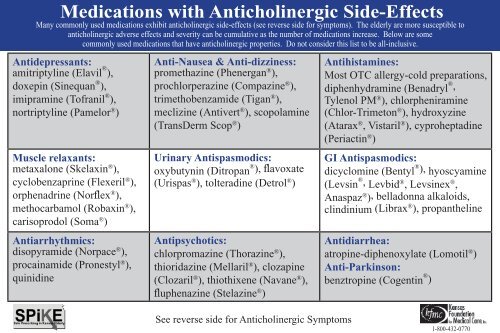


Medications With Anticholinergic Side Effects Kansas Foundation


Http Jrs Sagepub Com Cgi Reprint 93 9 457 Pdf
Many drugs have anticholinergic properties, meaning they inhibit the neurotransmission of acetylcholine in the brain Drugs with anticholinergic effects prevent acetylcholine from binding to receptors, resulting in therapeutic effectsThe antidepressant Paxil is one of a class of medications, called anticholinergic drugs, which a new study suggests might increase the risk of dementia with longterm useSide effects can include dry mouth blurry vision constipation drowsiness sedation hallucinations memory problems trouble urinating confusion delirium



Side Effects And Uses Of Muscarinic Antagonists
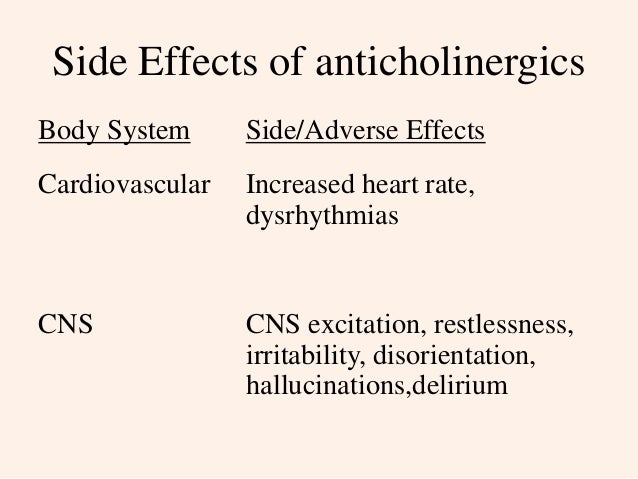


Anti Cholinergic Drugs






Common Allergy Drugs May Raise Dementia Risk



Anticholinergic Medications Do I Still Need This Medication Is Deprescribing For You



T4td Anticholinergics Multiple Sclerosis Research Blog



Anticholinergic Effects At Various Body Sites Download Table



Anticholinergic Mnemonic Sketchy Medicine



Extrapyramidal And Anticholinergic Side Effects Download Table


Www Health Ny Gov Publications 1491 Pdf


Emdocs Net Emergency Medicine Educationtoxcards Sympathomimetic Vs Anticholinergic Toxidromes Emdocs Net Emergency Medicine Education


Are Anticholinergics That Bad For You Quora
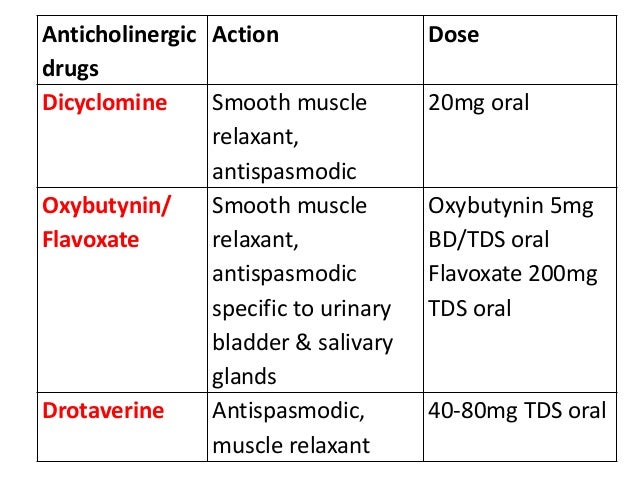


Anticholinergic System And Drugs


Commonly Prescribed Drugs Tied To Higher Dementia Risk



Drugs With Anticholinergic Side Effects In Primary Care Semantic Scholar


Consultantpharmacist Com Blog Anticholinergic Burden



Pin By Lindsi Wilbur On Edgeimication Studying Medicine Nursing Mnemonics Medical Surgical Nursing


Side Effects Of Anticholinergic Drugs
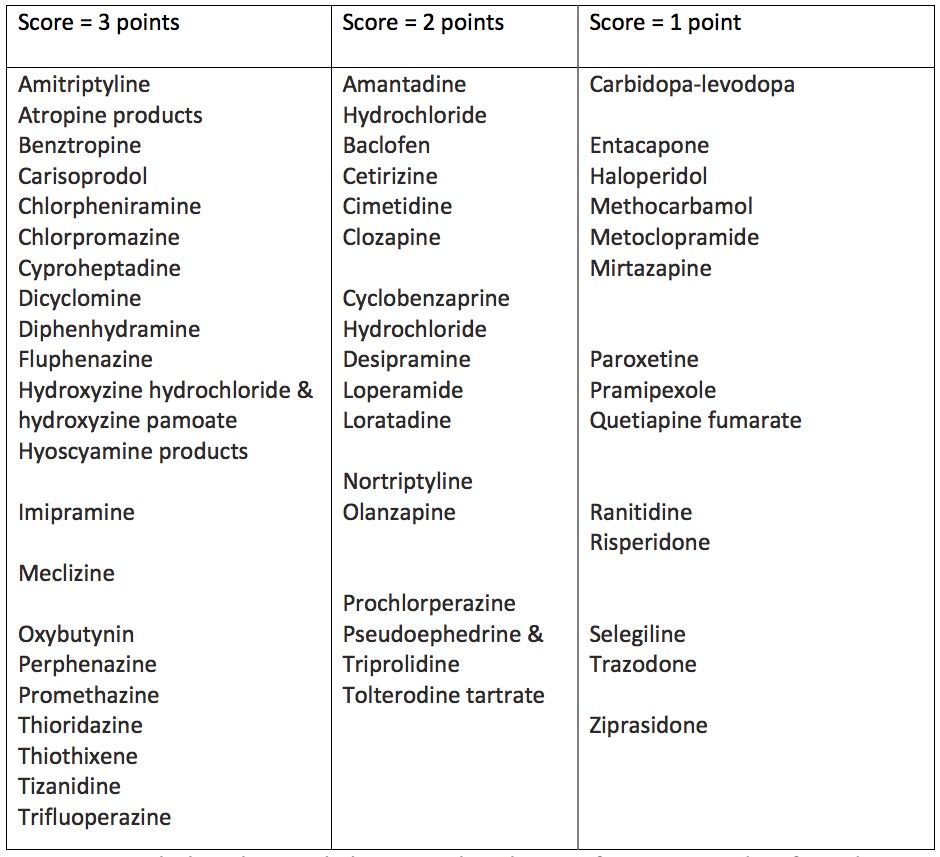


Anticholinergic Burden Assessment And Future Diagnosis Of Dementia


Anticholinergic Side Effects In The Elderly Pharmacy Network Services



Anticholinergic Drugs And Dementia
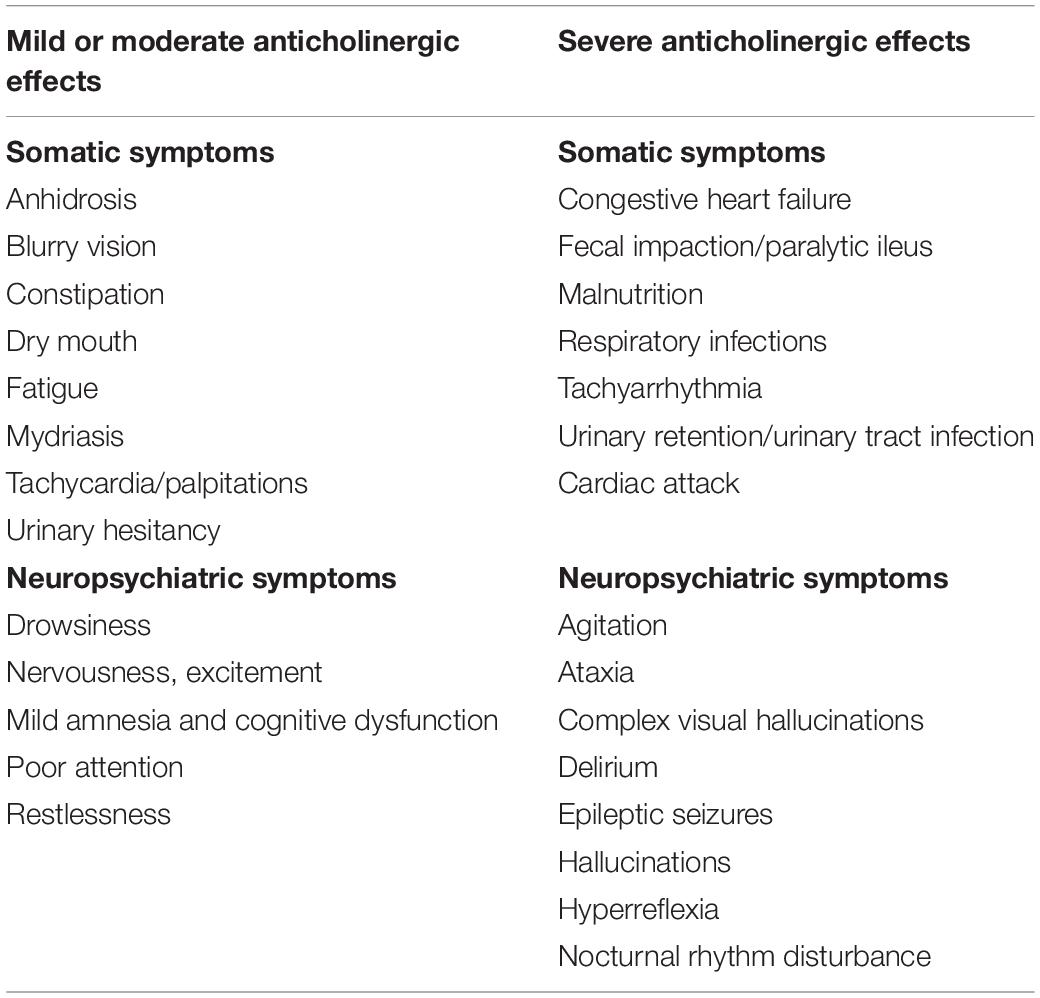


Frontiers Anticholinergic Drugs In Geriatric Psychopharmacology Neuroscience



Cholinergic Anticholinergic Drugs Flashcards Quizlet



Anticholinergic Meds
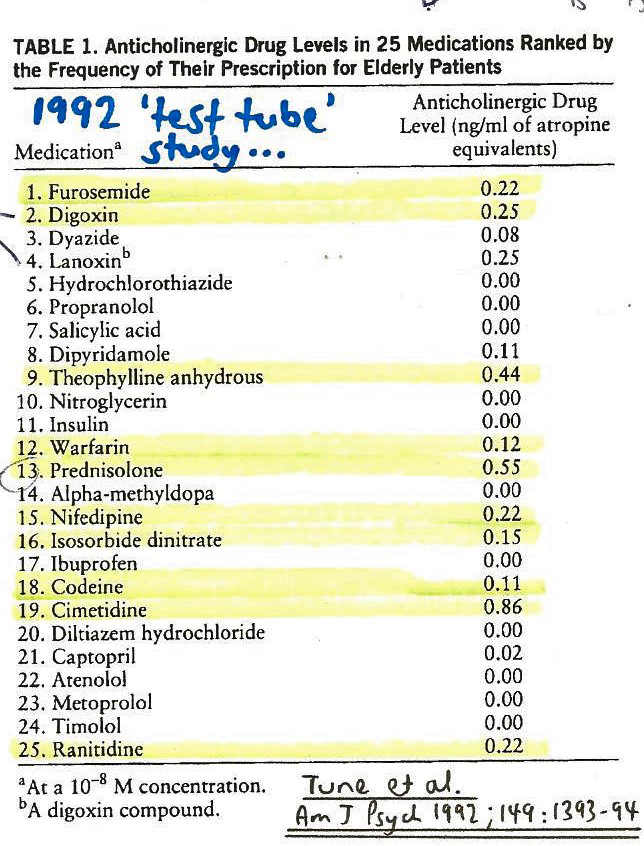


Troubled Reality Of Anticholinergic Burden Scales Insight



Anticholinergic Drugs For Overactive Bladder A Review Of The Literature And Practical Guide Munjuluri 07 The Obstetrician Amp Gynaecologist Wiley Online Library



Anticholinergic Drugs Uses And Side Effects


113 How Well Do You Know Your Anticholinergic Antimuscarinic Drugs



Anticholinergic Properties Of Medications And Their Adverse Side Effects Pharmacist Expert Withness Dr William Simonson



Anticholinergic Side Effects Nursing School Nurse Pharmacology Nursing



Side Effect Of Many Commonly Used Drugs Linked With Increased Health Risks Including Death For Adults Over 65 Bmed Report



Anticholinergic Drugs For Overactive Bladder A Review Of The Literature And Practical Guide Munjuluri 07 The Obstetrician Amp Gynaecologist Wiley Online Library
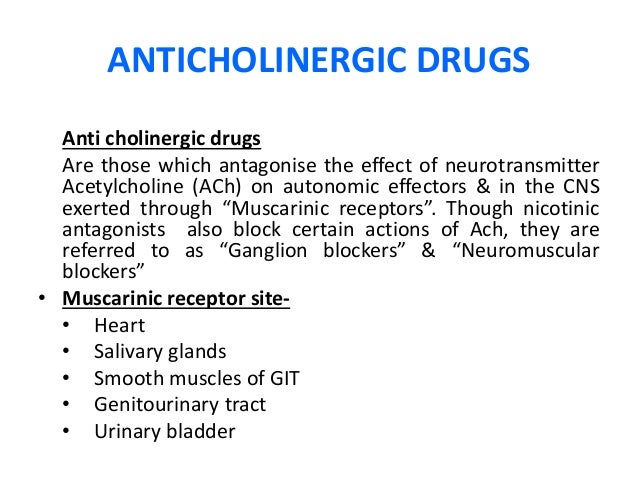


Anticholinergic Drugs



Effect Of Anticholinergic Drugs On Cognitive Impairment In The Elderly Semantic Scholar



Association Between Anticholinergic Burden And Anticholinergic Adverse Outcomes In The Elderly Pharmacological Basis Of Their Predictive Value For Adverse Outcomes Sciencedirect



Pneu Pnurse Drugs That Can Cause Anticholinergic Effects


1



Anticholinergics Safety Concerns Medicines Safety Portal



T4td Anticholinergics Multiple Sclerosis Research Blog
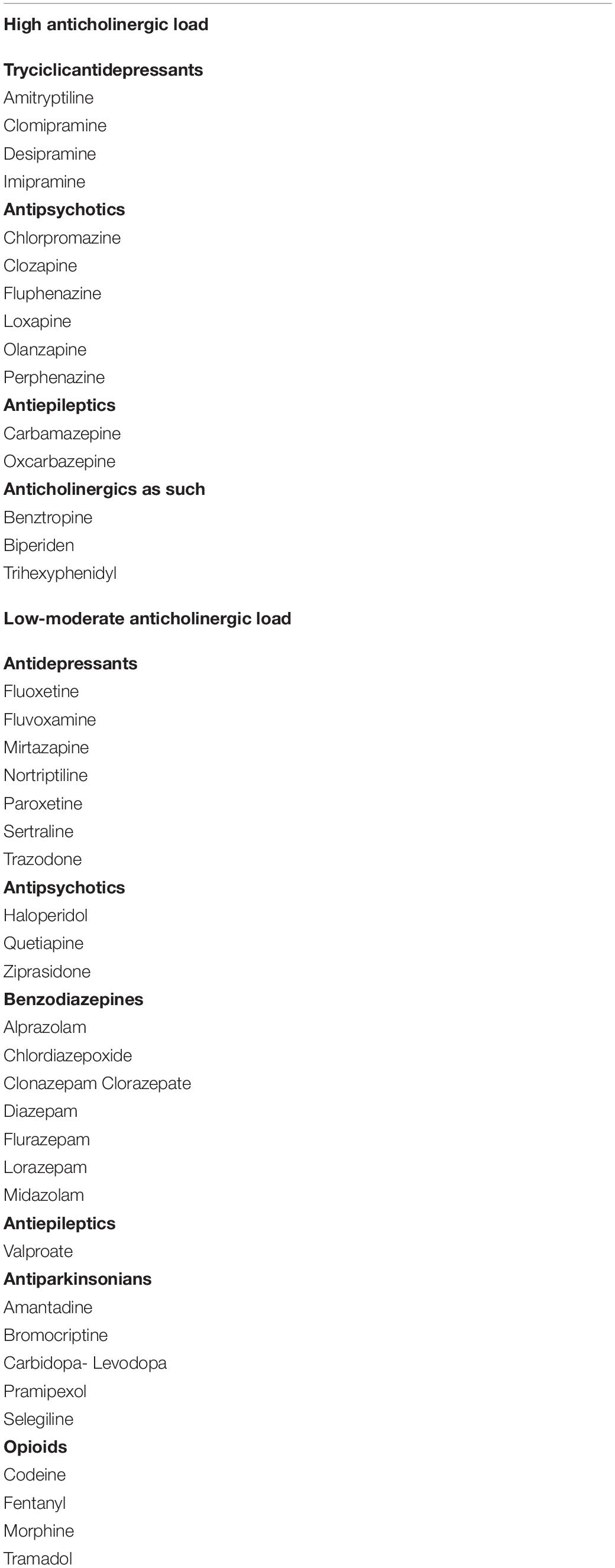


Frontiers Anticholinergic Drugs In Geriatric Psychopharmacology Neuroscience
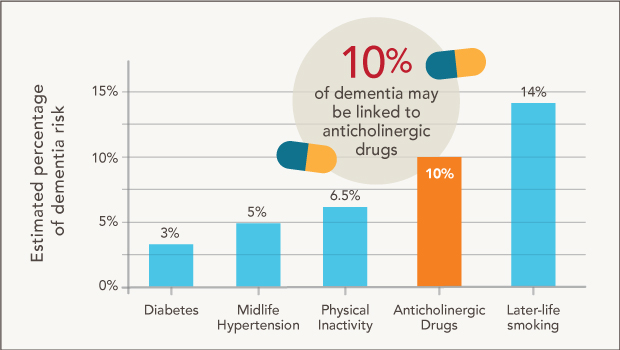


Could Deprescribing Anticholinergic Drugs Prevent Dementia


Its All About Pharma Anticholinergic Side Effects Mnemonic
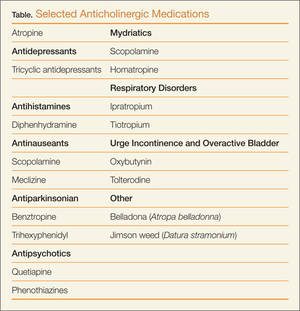


Case Studies In Toxicology Hot As A Hare And Red As A Beet Clinician Reviews



Antiparkinsonism Anticholinergic Drugs In Pharmacology Tutorial 08 March 21 Learn Antiparkinsonism Anticholinergic Drugs In Pharmacology Tutorial Wisdom Jobs India
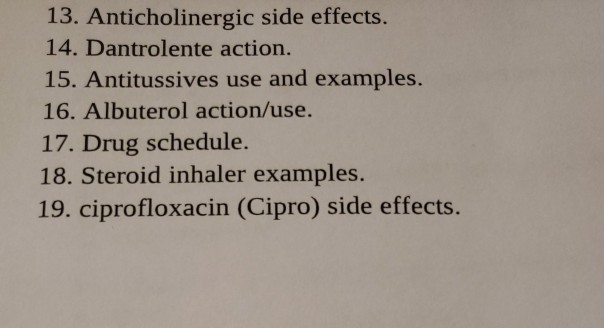


Solved 13 Anticholinergic Side Effects 14 Dantrolente Chegg Com



The Mode Of Action Of Anticholinergics In Asthma European Respiratory Society



Anticholinergic Versus Cholinergic Effects On The Body Pharmacology Grepmed



Pharmacology Anticholinergic Neuromuscular Blocking Agents Made Easy Youtube



Alzheimer S Dementia Weekly Beware Of Common Anticholinergic Drugs



Pin By Abby D On Nurse Oh Nurse Nursing School Studying Nursing School Survival Nurse Teaching



Side Effects Of Anticholinergic Drugs In Amyotrophic Lateral Sclerosis Download Table
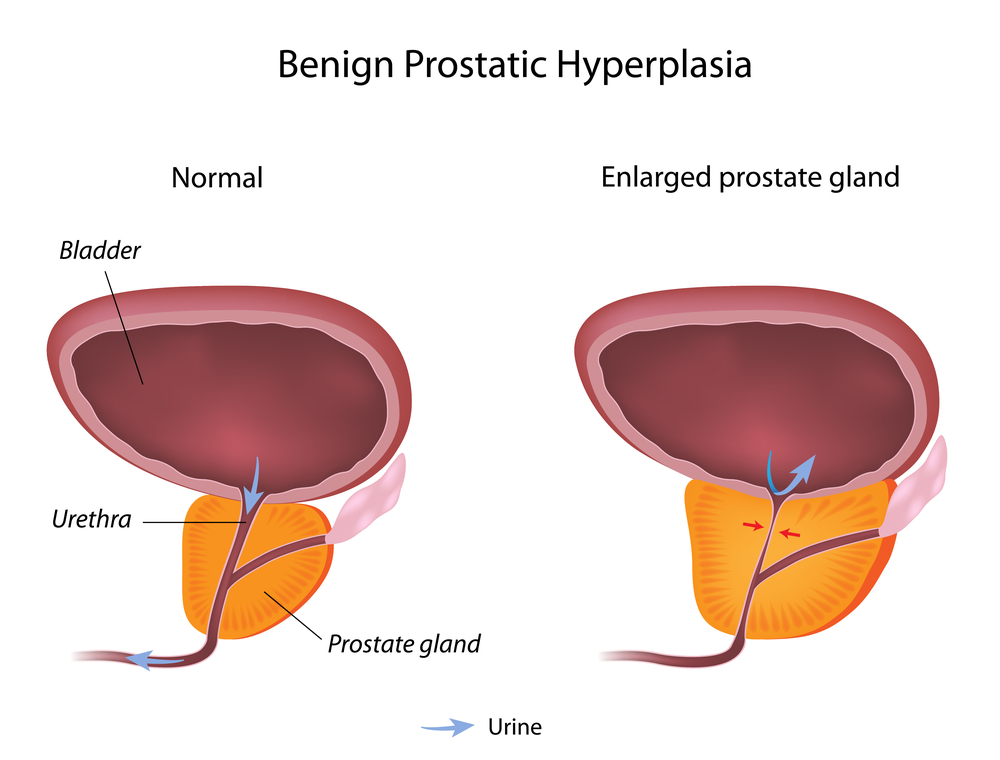


Anicholinergics Can Worsen Bph



Comparison Of Risk Of Neurovascular And Cardiovascular Side Effects Between Tiotropium And Other Anticholinergic Agents Insight Medical Publishing






1 Anticholinergic Drugs Muscarinic Antagonists Antimuscarinic Agents Part 1 Youtube



Therapeutic Brief Veterans Mates
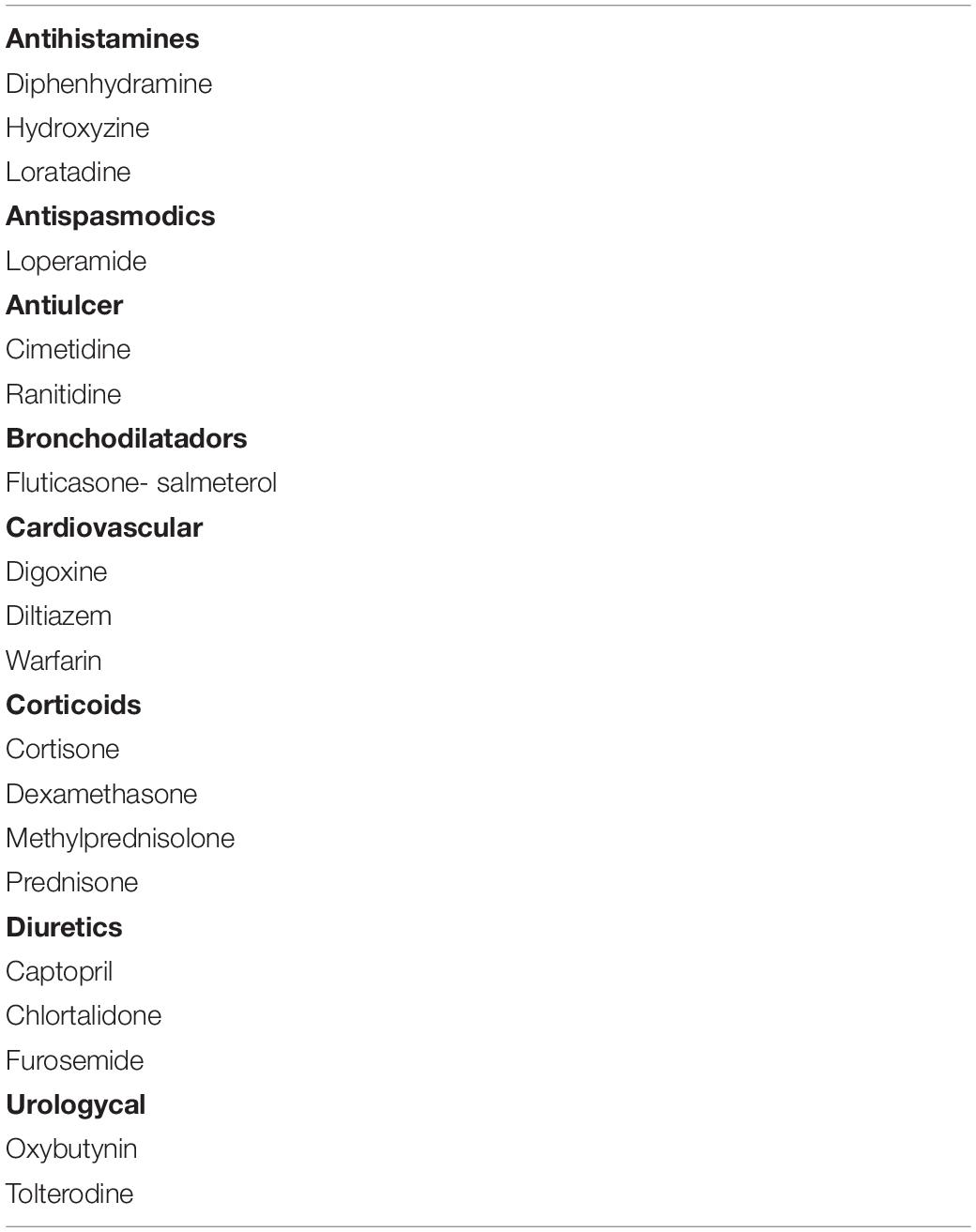


Frontiers Anticholinergic Drugs In Geriatric Psychopharmacology Neuroscience


Medical Administration Pharmacology And Nutrition Nclex Review
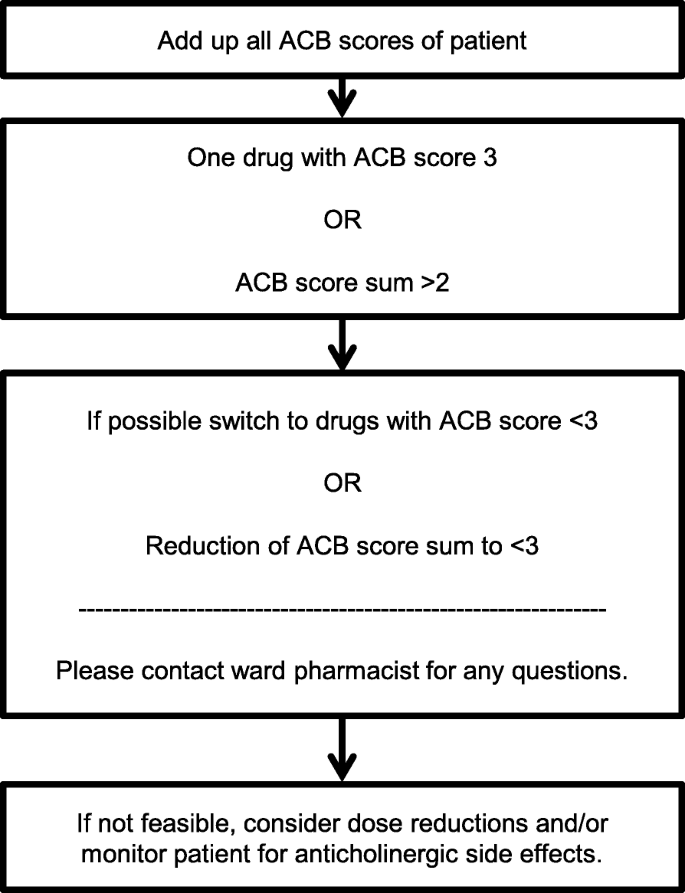


An Anticholinergic Burden Score For German Prescribers Score Development Bmc Geriatrics Full Text



Alzheimer S Dementia Weekly Beware Of Common Anticholinergic Drugs
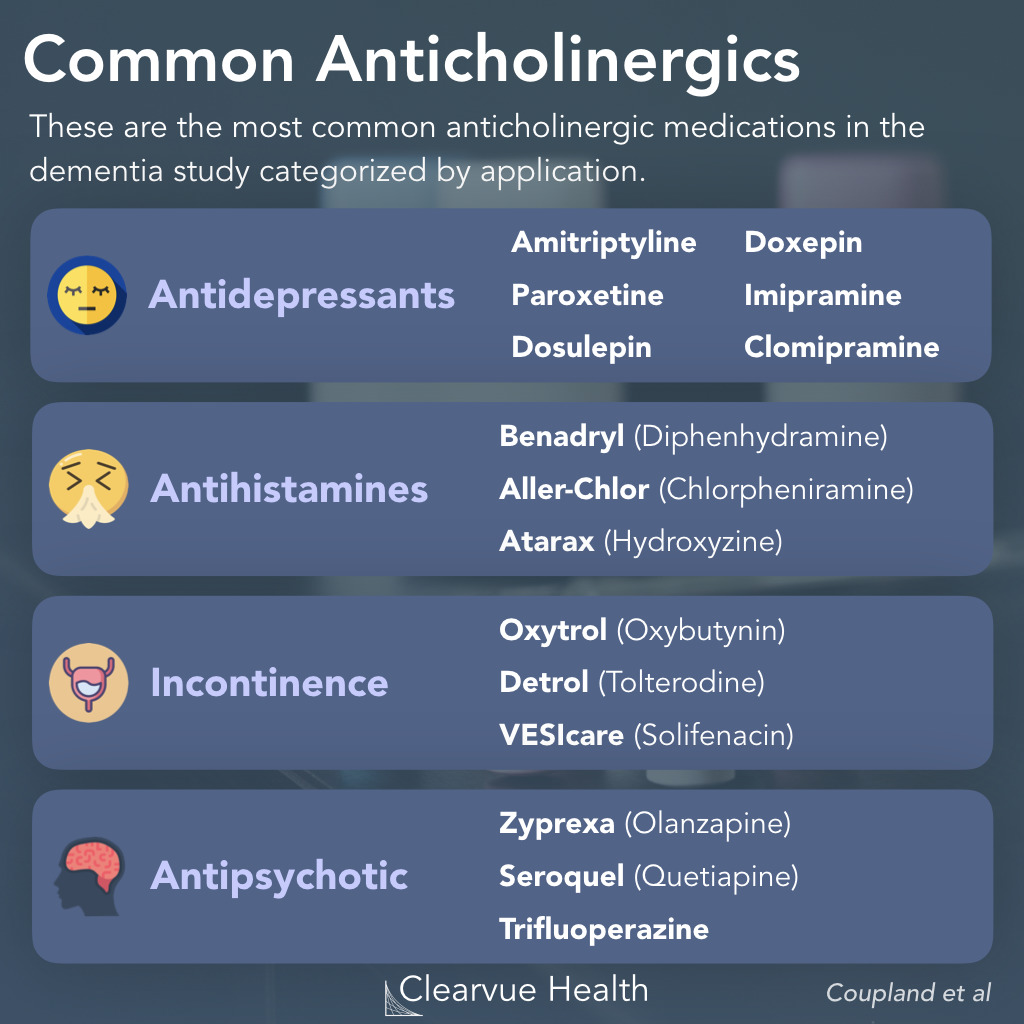


3 Charts Medications Dementia Risk Visualized Science



Anticholinergic Syndrome Presentations Etiological Agents Differential Diagnosis And Treatment Consultant360



Anticholinergic Drugs Faisal8670



Anticholinergic Drugs For Overactive Bladder A Review Of The Literature And Practical Guide Munjuluri 07 The Obstetrician Amp Gynaecologist Wiley Online Library
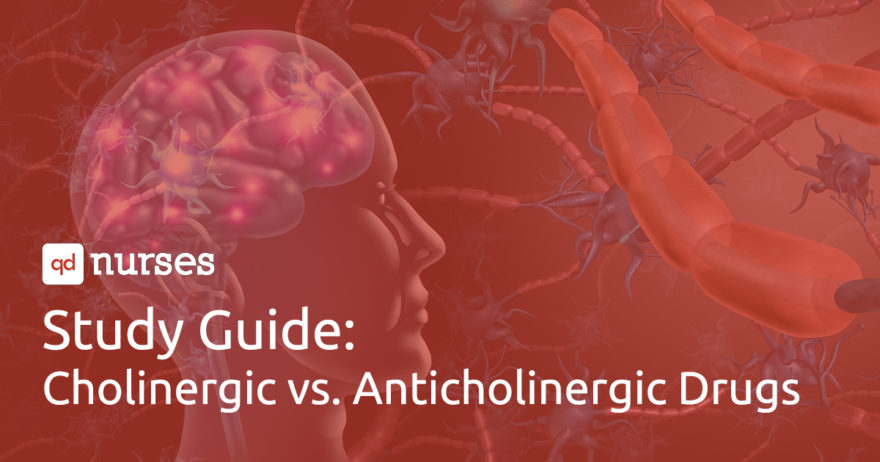


Study Guide Cholinergic Vs Anticholinergic Drugs Qd Nurses



Anticholinergic System And Drugs



Drugs With Anticholinergic Side Effects In Primary Care Yayla E M Yavuz E Bilge U Keskin A Binen E Niger J Clin Pract



Pin By Suzanne Gramlich On Nursing Inspired Nurse Teaching Pharmacology Nursing Nurse Life
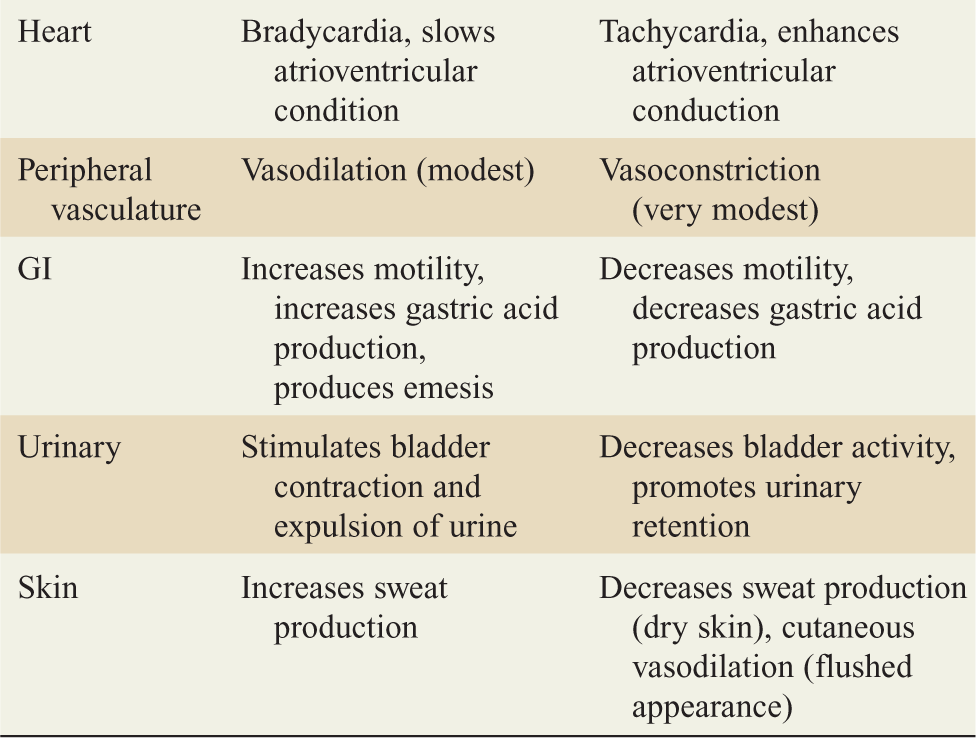


Anticholinergics Anesthesia Key



Anticholinergic Drugs Pharmacology Daily Classification Youtube



Anticholinergic Drugs Incomplete Docx Anticholinergic Drugs Parasympatholytic Antiparasympathetic Agents Cholinergic Muscarinic Receptor Antagonists Course Hero



Medication With Anticholinergic Or Antimuscarinic Effects Download Scientific Diagram
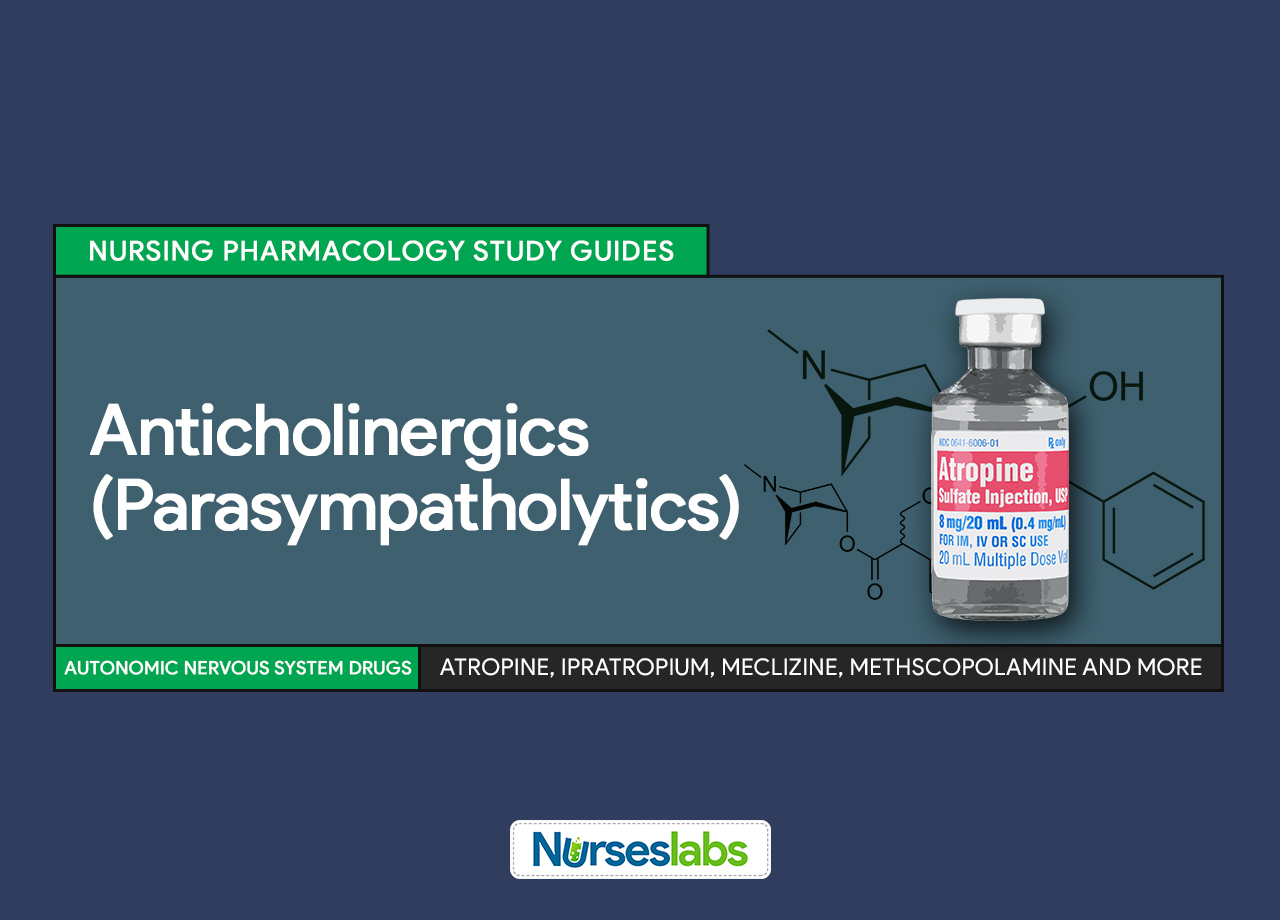


Anticholinergics Parasympatholytics Nursing Pharmacology Study Guide



List Of Anticholinergic Drugs Used By Study Participants All Drugs Had Download Table


コメント
コメントを投稿